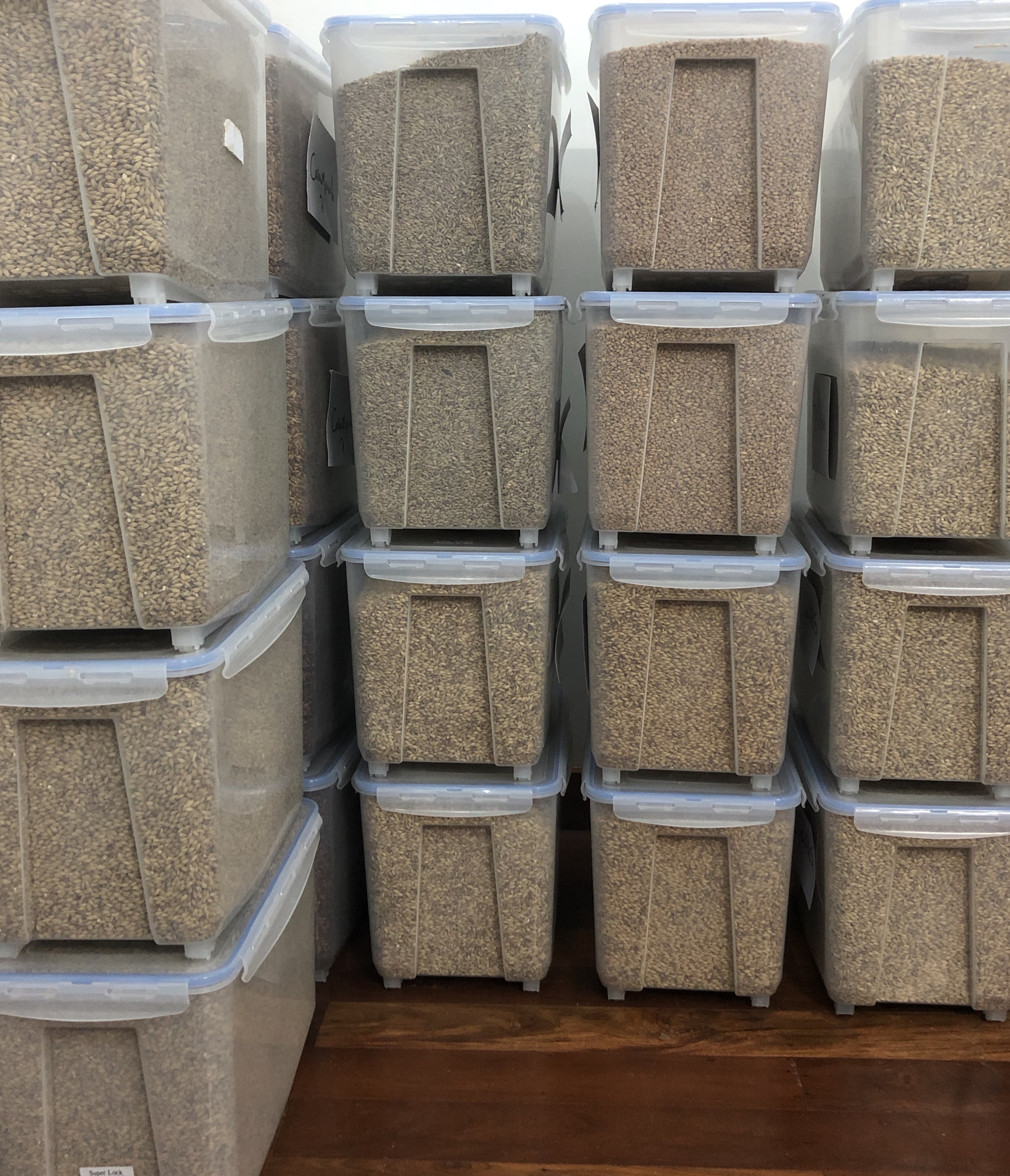- Joined
- Dec 19, 2015
- Messages
- 604
- Reaction score
- 185
Hi
I bought in bulk again and after my last weevil infestation (see previous post) you guys recommend to freeze the grains to kill all would be insects
Well, it just so happens my chest freezer is free and big enough to fit a bunch of sacks
A couple of questions come to mind that aren’t really answered in similar posts- or perhaps I missed them
Briess doesn’t not recommended freezing grains(taking them through freeze cycles) freezing and unfreezing), however, there’s a lot of contradicting info on freezing grains.
To be clear, I only want to freeze them to kill insects and not for long term storage. I figure, per similar posts, that 5 days ought to do it and at what temperature?
Right now I have it set for -10c (about 14f)
My questions/concerns are : can I freeze unmilled grains for like 4-5 days, then take them out of the freezer, and then into buckets or the sort without the fear of them somehow going bad- moisture might take hold once stored in a container after be thawed
Would the sacks themselves be fine to simply put in the freezer or should I put a plastic bag over them?
Then, lastly, if the initial freeze where to kill the insects, i’m assuming they’re still at risk and may need to be refrozen down the line to kill anything that may pop up
Thoughts?
I bought in bulk again and after my last weevil infestation (see previous post) you guys recommend to freeze the grains to kill all would be insects
Well, it just so happens my chest freezer is free and big enough to fit a bunch of sacks
A couple of questions come to mind that aren’t really answered in similar posts- or perhaps I missed them
Briess doesn’t not recommended freezing grains(taking them through freeze cycles) freezing and unfreezing), however, there’s a lot of contradicting info on freezing grains.
To be clear, I only want to freeze them to kill insects and not for long term storage. I figure, per similar posts, that 5 days ought to do it and at what temperature?
Right now I have it set for -10c (about 14f)
My questions/concerns are : can I freeze unmilled grains for like 4-5 days, then take them out of the freezer, and then into buckets or the sort without the fear of them somehow going bad- moisture might take hold once stored in a container after be thawed
Would the sacks themselves be fine to simply put in the freezer or should I put a plastic bag over them?
Then, lastly, if the initial freeze where to kill the insects, i’m assuming they’re still at risk and may need to be refrozen down the line to kill anything that may pop up
Thoughts?





















































![Craft A Brew - Safale S-04 Dry Yeast - Fermentis - English Ale Dry Yeast - For English and American Ales and Hard Apple Ciders - Ingredients for Home Brewing - Beer Making Supplies - [1 Pack]](https://m.media-amazon.com/images/I/41fVGNh6JfL._SL500_.jpg)





